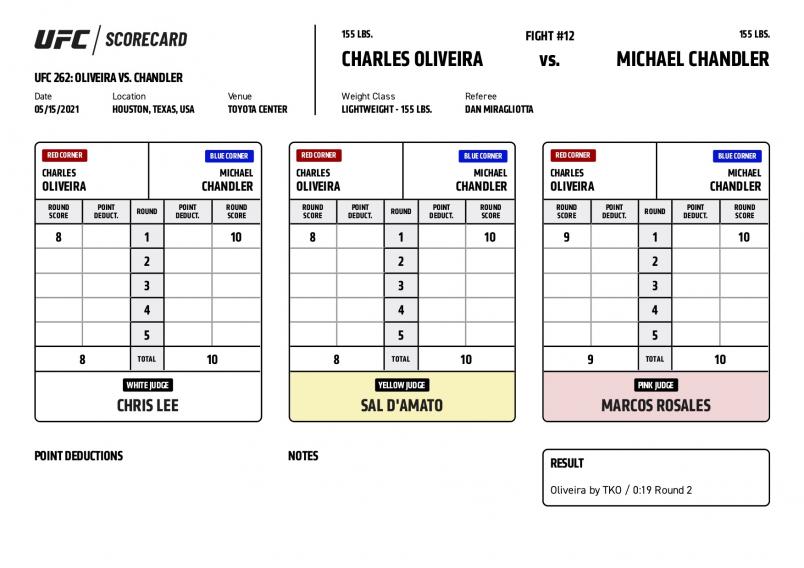news
CSAC: MMA Judging ‘is better now than it ever has been’
By
VM StaffThe sport has had its fair share of robberies in the past, but Executive Director of the California State Athletic Commission (CSAC) has given his state on the present state of MMA Judging. Andy Forster sat down with ESPN MMA for an interview and gave his thoughts:
“Mixed martial arts scoring, at the high level, at the UFC level, is better now than it ever has been, I’ve got stats, I’ve got all kinds of things to prove that point. Doesn’t mean we can’t get better, doesn’t mean that. But, it’s better than it ever has been. And it’s to the point now that where the media and fans are examining individual rounds to see if a judge was off in that particular round, which I think is absolutely valid, to credit. But at some point, the right guy is winning, or the right woman is winning most of the time.”
There have been a string of Rounds and fights that have left fans scratching their heads on their scoring, not just under the CSAC to clarify. Most of the fights on this list are approaching a decade since they happened and of course, that’s encouraging. However, objectively bad calls are still happening most recently the scoring of the opening round of Olivera vs Chandler back on May 16.

“Doesn’t mean we can’t get better, we can. We’re gonna try to get better. We do it everywhere, every month. But it’s a process and it’s gotten better.”
Lack of Manpower that hampers the growth of MMA Judging
Foster pointed out some struggles that athletic commissions face. One of them, he says, is the total number of high-level judges in correspondence with the number of MMA events on a global scale. We have about 15 judges worldwide who can score at the highest level. About 15 and that’s not enough for the sport of this size. You’ve got to have rounds, you’ve got to have competency. What we’re trying to do and what I think Nevada’s trying to do and a lot of states are trying to develop (is) additional people that can go out there and score, and give people opportunities. But we have to develop additional judges that can do this.”
A Place for Retired Vets?
This sounds like a job for former professionals and amateurs a alike, who have experienced the stress of competition first hand. Foster himself competed at one time and realizes the struggles that the athletes face as they step in to scrap. He also wants the judges to be trained at such a level that they can finally give the fighters the attention and the care that they deserve.
“We have to do what’s right for these fighters,” he said. “What we do with the fighters, we’re dealing with many times, a religious conversion, or a birth of a child, or a marriage. We’re dealing with the most important day of their professional lives. They’ve trained their entire life for this.
“And if these judges and these referees have not put in the same level of dedication to get there, to sit in the seat, then I need to pick somebody else.
“You’ve got to give the fighters the best. This is what they deserve and we’ve got to put our best foot forward.”
You may like
-

UFC 297 – Weigh-In Results
-

Leon Edwards: 2023’s UK MMA Male Fighter Of The Year
-

BREAKING | Lerone Murphy out of his fight with Dan Ige
-

“I’m The One To Do It” – Liam Nolan Believes He Can Dethrone Regian Eersel
-

Dakota Ditcheva: 2023’s UK MMA Female Fighter Of The Year
-

UFC Vegas 84 – Results | Ankalaev vs Walker 2